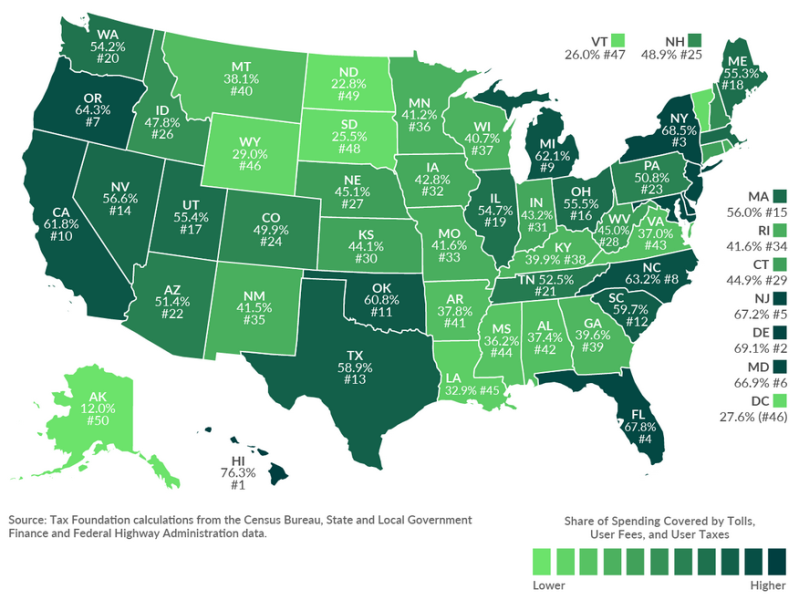Colorado Taxes and Fees Only Cover Half of What Colorado Spends on Roads

When politicians argue for bike taxes or call transit a bad investment because it doesn’t pay for itself, the implicit assumption is that these modes are somehow different than roads, which purportedly “pay for themselves.” They couldn’t be more wrong.
In Colorado, state and local taxes and fees collected from road users only cover half of what state and local governments spend on roads and bridges, according to new research from the Tax Foundation. The tax policy watchdog released this infographic earlier this month, ahead of a forthcoming update to its semi-regular reports on transportation spending. (Note: the calculations do not include federal gas taxes or spending, but the general pattern of big subsidies for roads holds at the national level.)
“We really do face a big mismatch between the revenue that we’re collecting for roads and transportation and the amounts we’re spending on them,” said Joseph Henchman, executive vice president of the Tax Foundation.
In Colorado, the General Assembly hasn’t raised the gas tax since 1993. When you factor in inflation, the state is receiving less from the gas tax now than it did 24 years ago, according to a report from the Southwestern Energy Efficiency Project. Meanwhile, construction costs have been rising. Registration fees and tolls don’t come close to closing the road spending deficit.
But the state keeps plowing ahead with expensive projects like widening I-70, which only add to all the maintenance liabilities.
That’s why Colorado Department of Transportation Director Shailen Bhatt has called for a higher gas tax. A large enough increase could actually lower the subsidy for roads, unlike State Senator Ray Scott’s short-lived plan to tax bikes.
But the state could also make ends meet by spending the money it has smartly. Urban areas like Denver don’t need more highway lanes, more traffic, and more pollution.
The Tax Foundation doesn’t take a position on how to fix the funding gap — it just wants to shatter a false narrative.
“People always talk about fare-box recovery and how low it is, and how it doesn’t pay for itself, and we just wanted to highlight that that’s not a problem exclusive to transit,” Henchman said.


